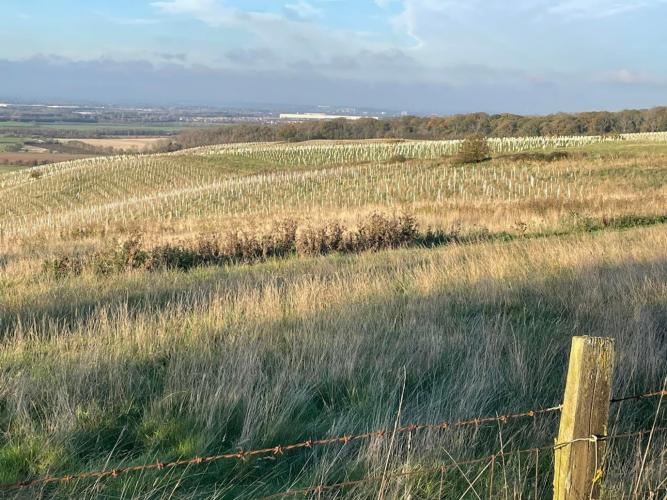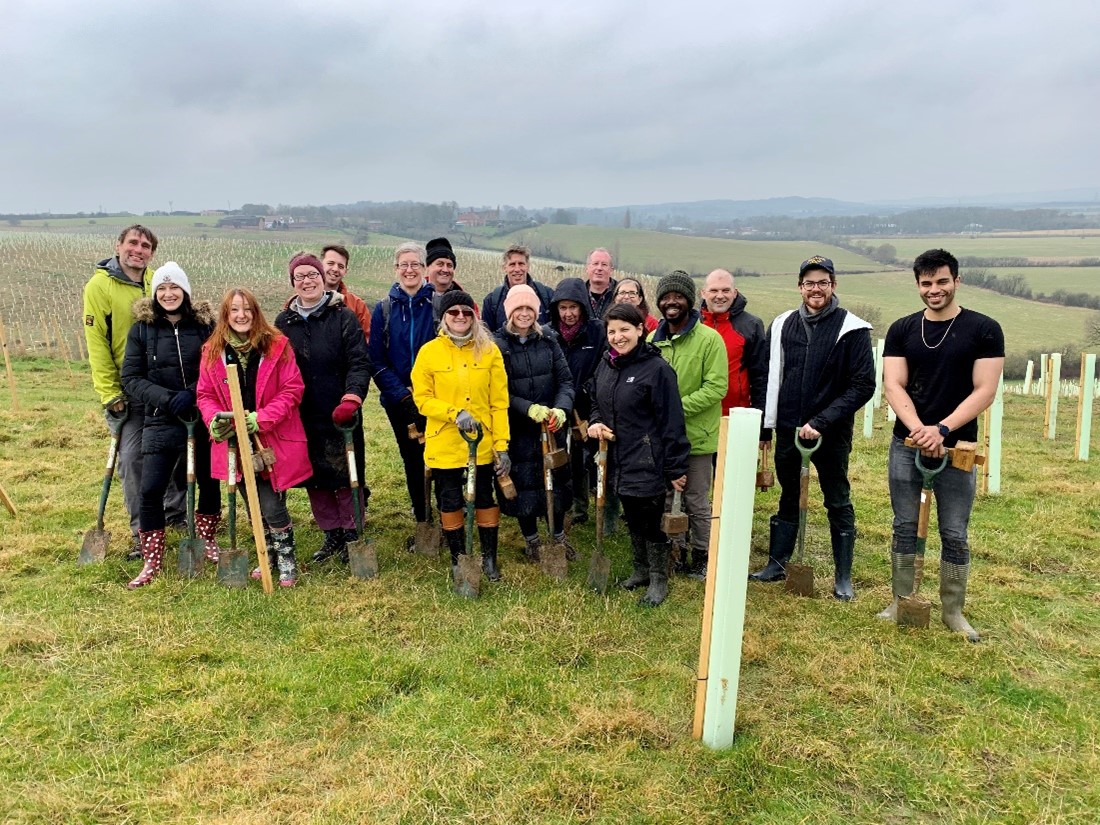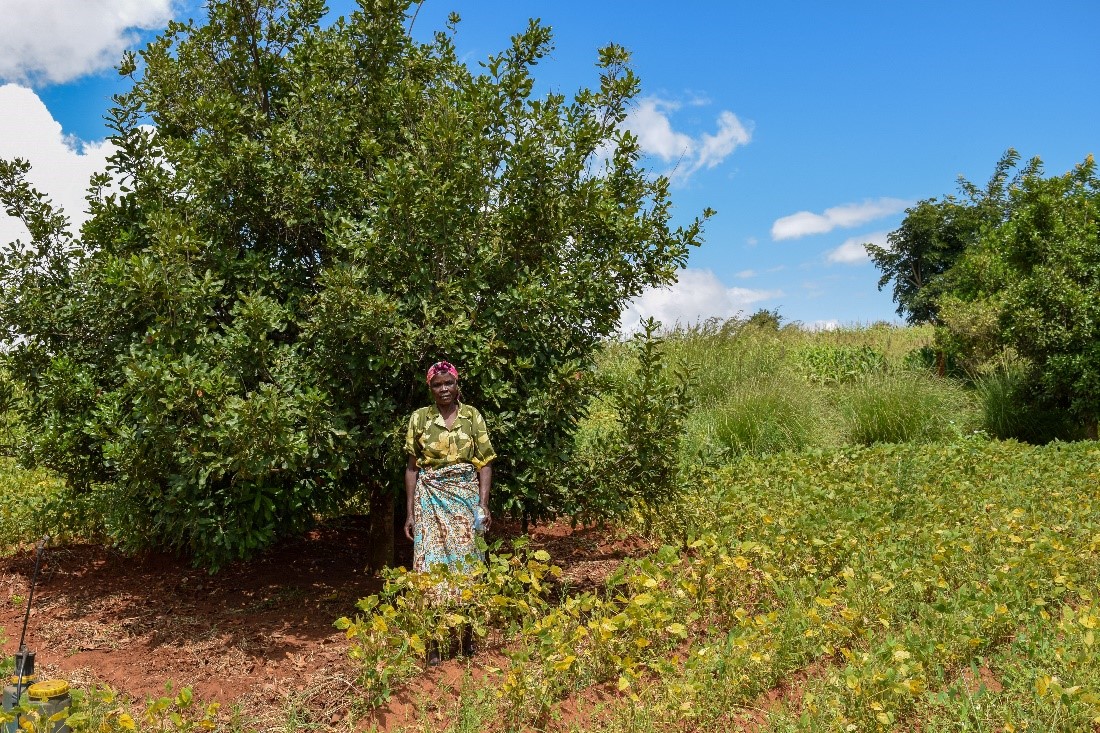You are here
- Home
- OU Graduate School Tree Planting
OU Graduate School Tree Planting

Since October 2020, The Open University Graduate School have planted a tree for each graduating PhD and Professional Doctorate student at either:
- Forest of Marston Vale, a Community Forest, located close to the University campus in Buckinghamshire,
- Neno Macadamia Trust in Malawi where the trees will support farmers and their families.
The tree planting project, thought to be the first of its kind at a university in the UK, works closely with these two organisations, who represent the importance of both local and international partnerships to the University.
The tree planting project is a way of us congratulating and marking each student’s admirable success in completing their doctorate. It also represents our commitment to climate action, a cause that is central to the University’s strategy and particularly important to The Open University Graduate School and to many Postgraduate Researchers.
Over the next 5 years we will plant approximately 1000 trees, 500 in each location. Neno Macadamia Trust plant the trees in Malawi. The intention was for staff and students to plant trees at Marsden Vale. However, the first year of planting (2021) took place during the pandemic and was undertaken by Marston Vale staff. In 2022 Open University staff and PGR (Postgraduate Research) students planted the trees at the site.
We are now working to explore how best to document the environmental impact of the project. The impact will be assessed over time:
"Planting trees is a popular route for sequestering carbon in order to mitigate climate change, but, as with all natural processes, it’s not straightforward. The OU Graduate School is not, like many, just assuming you can put a tree in the ground, and it will capture carbon from the air; we intend to measure its effectiveness. We will monitor above-ground growth and changes in the soil, so together we can give a full picture of how the trees are performing. We plan to sustain the monitoring over many years to give a timeline of carbon drawdown that will inform debates around how best to mitigate climate change."
- Professor David Gowing, Professor of Botany, School of Environment, Earth and Ecosystem Sciences
The impact of the tree planting scheme is likely to be long term and complex. This year Open University scientists sampled the soil, and its carbon content was measured in the OU Ecosystem Labs. This provides a baseline against which to measure change. Professor Gowing noted that:
“The mean amount of organic carbon in the top half metre of soil at the site was 207 tonnes per hectare. This is quite a high figure for arable soils and probably reflects the site’s history as grassland until quite recently.
In Malawi, the impact of climate change threatens production of crops, negatively impacting the lives of people in one of the most disadvantaged countries in the world.
“Macadamia is an important lucrative crop globally, especially among rural smallholder producers in Malawi. However, climate change threatens production & productivity. As such smallholders will be required to adapt and become resilience to climate change. Agroforestry provides a viable option for climate change mitigation and adaptation.” – Emmanuel Zuza, Postgraduate Researcher
Through Neno Macadamia Trust the tree planting scheme provides local smallholders with macadamia nut trees to grow for food and for commercial production.
One of the next steps for the project is to begin measure the impact of the tree planting in Malawi.
Additional information
Suggested course: U116 | Environment | Open University
Link to tree video on YouTube: (1) Tree Planting with the OU Graduate School at the Forest of Marston Vale - YouTube


This article has been written by Robert Wilson, Manager, Student Opportunities, and Lindsay O'Dell, Academic Director at The Open University Graduate School, in Novemeber 2022 as a response to a call for articles from our OU colleagues, that relate to climate change from their own disciplinary or lived experience.
Related articles
- Reducing your carbon footprint this Festive Season 28th October 2024
- Accelerating Ambition and Impact: EAUC Conference 2024 30th July 2024
- Driving change: Imagining a different transport future 23rd July 2024
- Donating items to MK Food Bank 21st July 2024
- Butterflies as indicators of our impacts on nature - Climate Perspectives 9th July 2024